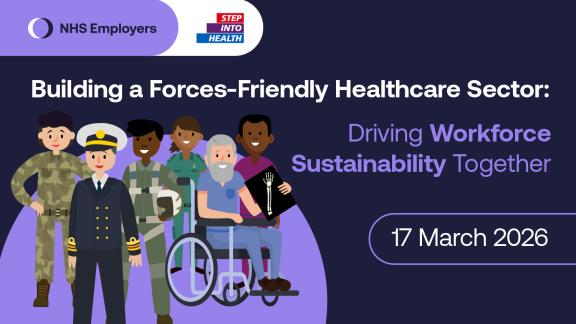Mid Cheshire Hospitals NHS Foundation Trust reimagines their work experience programme

What the organisation faced
When Mid Cheshire Hospitals NHS Foundation Trust reopened their work experience programme after the pandemic, they were inundated with requests from students. This coincided with an extremely busy time for the trust, where staff members lacked the time and capacity to support students. A new model was required, offering more certainty to teams, and reducing ad hoc requests which were causing a significant administrative burden. Through reflecting on a new approach, the Aspire to Be programmes were created, reimaging work experience in a modern, practical way.
What the organisation did
The Aspire to Be programmes are a mix of virtual engagement and face-to-face learning designed to give students a taster of a potential career in the NHS. It is designed to minimise pressure on staff and allow more students to undertake valuable work experience. Currently, it is offered to aspiring allied health professionals (AHP) or doctors and those aspiring to work in support services such as finance or estates and facilities. The trust will soon be introducing a programme for those aspiring to be a nurse.
Each strand, apart from support services which is a more traditional model, follows a similar approach. There is a welcome and practical session, where all shortlisted students visit the trust in person, to listen to talks from staff working in their career of interest, several practical sessions, and a Q&A session.
The students are then given a month to complete a piece of independent work, such as creating a public health information poster or an AHP career leaflet, as well as completing a small number of online learning modules. The independent work is then reviewed by a panel with those students who best engaged with the task invited to come and do a short placement in the trust.
The trust is confident this is a fair and transparent model, with any student over 16 doing a relevant qualification at 17 local schools able to apply for the opportunity. Those who attend the welcome and practical day receive a certificate of completion, and those who do a face-to-face placement are invited to attend a short graduation. The trust is also keen for student feedback, with evaluations sent to those who attended.
Through this structure, work experience students will only be in the trust for one week in March and October, allowing staff to better manage the balance of supporting other placements. The trust is clear that this is the only pathway for work experience, with the website outlining the process, leading to a large reduction in ad hoc requests. They have also decided not to offer work experience for students under the age of sixteen, as a comprehensive programme of careers advice and guidance is in place for younger students.
Takeaway tips
Ensure students are clear on the purpose of the programme and their responsibilities in terms of completing all elements of the programme.
Engage the professionals in the creation of the programme so they can have input and lead on the practical activities.
Celebrate success at the end of the programme. The students have committed to do this programme alongside their studies, so make sure to celebrate their commitment.



